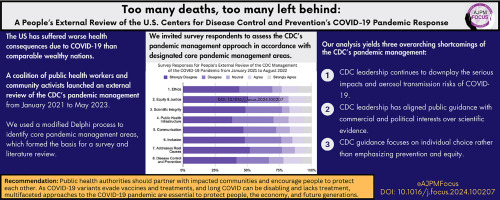
As a surgical resident, I witness the persistent impact of inadequate public health daily — be it a diabetic foot ulcer that has gone untreated for too long or a hypertensive emergency that could have been prevented. This is why the suggested reorganization of the CDC and other federal health organizations feels more than administrative to me — it resonates on a personal level.
The case for reform frequently emphasizes efficiency: Cut down on red tape, enhance oversight, conserve taxpayer dollars. However, we must inquire further: What are we truly aiming to optimize?
When it comes to preventing chronic diseases — arguably one of the CDC’s most critical roles — the U.S. already lags significantly. We allocate more funds to healthcare than any other nation, yet we rank 32nd in life expectancy among developed countries (OECD data). If this restructuring is intended to improve our standing, where is the tangible proof?
There could indeed be advantages to reform. It might facilitate swifter responses in crises or enhance collaboration between agencies. Nevertheless, if these modifications are being formulated without substantial input from healthcare professionals — those who experience the ramifications of these policies firsthand — we could inadvertently worsen the situation.
Even more alarming is the lack of public engagement. These alterations impact every American. Shouldn’t the public have a voice? When a nation’s health system is undergoing transformation, it ought to be an open process, not something conducted in secrecy. A national referendum, or at the very least, a clear and inclusive dialogue, is not merely reasonable — it is vital.
Discussing efficiency in theory is one thing. Performing an amputation because a patient’s diabetes went undiagnosed is quite another.
Public health infrastructure may not be glamorous. It doesn’t attract attention until something goes wrong. Yet those of us on the front lines recognize its importance — and we understand that once it is dismantled, reconstruction is challenging.
Therefore, let us engage in this discussion. But let’s do it openly. Let’s involve clinicians, epidemiologists, community health advocates, and indeed — the public. Let’s focus this reform not merely on cutting costs, but on preserving lives.
Because that is the true bottom line.
Tarek Khrisat is a surgical resident.